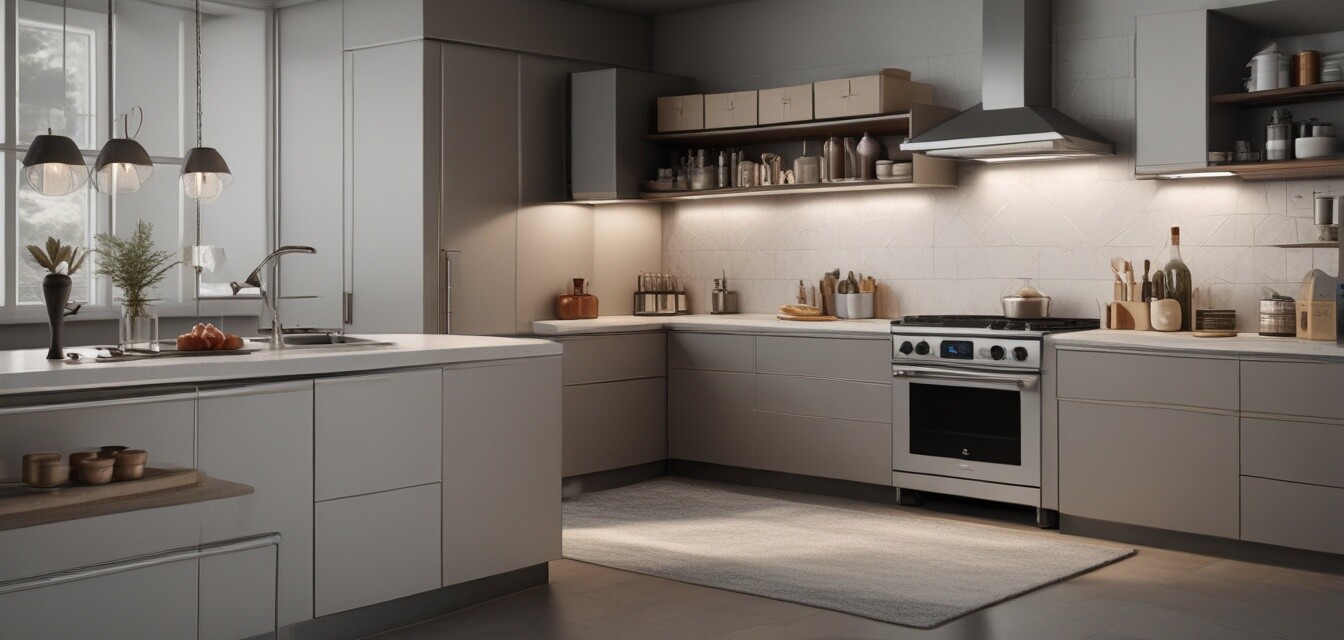
Choosing Smart Appliances for Small Spaces
- Understand the importance of size and functionality in small kitchens.
- Prioritize multi-function appliances to save space.
- Evaluate connectivity and smart features that enhance kitchen efficiency.
- Consider energy efficiency for better long-term savings.
- Explore various designs and styles that fit your kitchen aesthetics.
In today’s fast-paced world, maximizing every inch of your culinary space is essential, especially in small kitchens. Smart appliances not only modernize your cooking experience but also help you save space while enhancing functionality. This guide will walk you through the considerations and choices when selecting smart appliances that fit seamlessly into compact kitchen designs.
Understanding the needs of a small kitchen
Before investing in smart appliances, it's crucial to understand the unique needs of your small kitchen. Here are some factors to consider:
- Space Saving: Every inch counts, and you need appliances that fit snugly into your kitchen layout.
- Functionality: Choose appliances that perform multiple functions to reduce clutter.
- Energy Efficiency: Smaller appliances can still be powerful and energy-efficient, helping you save on utility costs.
Key features to look for in smart appliances
When selecting smart appliances, keep an eye out for the following features:
| Feature | Description |
|---|---|
| Multi-functionality | Choose appliances that can cook, bake, steam, and more within a single unit. |
| Smart connectivity | Look for appliances that can connect to your smartphone or smart home system for ease of use. |
| Compact design | Ensure the appliance is designed specifically for smaller spaces, without compromising features. |
| Ease of cleanup | Look for surfaces and designs that are easy to clean and maintain. |
Popular types of smart appliances for compact kitchens
Several types of smart appliances are particularly well-suited for small kitchens:
- Smart Ovens: These can bake, air-fry, and steam, combining several cooking methods.
- Intelligent Cooktops: Offer precise temperature control and efficient space usage.
- Smart Refrigerators: Have space-saving designs and internet connectivity for ease of grocery management.
- Touchless Faucets: Perfect for cleanliness and convenience, especially when multitasking.
Space organization strategies for small kitchens
To maximize the functionality of your smart appliances, it’s equally important to focus on organization. Here are some tips:
Tips for organizing a small kitchen
- Utilize vertical space with shelves and hanging racks.
- Choose storage solutions that can be hidden away when not in use.
- Organize frequently used items within easy reach, while keeping lesser-used items in cabinets.
- Consider rolling carts that can be tucked away when not in use.
Comparison of compact smart appliance features
| Appliance Type | Multi-functionality | Smart Features | Space-Saving Design |
|---|---|---|---|
| Smart Ovens | Yes | Wi-Fi enabled, recipe integration | Compact sizes available |
| Intelligent Cooktops | Yes | Smart temperature control | Flat, low profile |
| Smart Refrigerators | Yes | Food management apps | Designs to fit tight spaces |
| Touchless Faucets | No | Motion sensors | Compact spout designs |
Conclusion
By carefully considering your needs and the features of smart appliances, you can transform your small kitchen into a functional and stylish workspace. Prioritizing multi-functionality, energy efficiency, and compact designs will help you make the best choice for your compact living space.
Pros
- Maximizes limited space.
- Improves cooking efficiency.
- Enhances the overall kitchen aesthetic.
- Provides modern convenience and connectivity.
Cons
- Can be more expensive than traditional appliances.
- May require learning curves for smart features.
- Potential compatibility issues with older home systems.
Explore our Smart Kitchen Buying Guides for more tips on selecting the right appliances that fit your lifestyle!